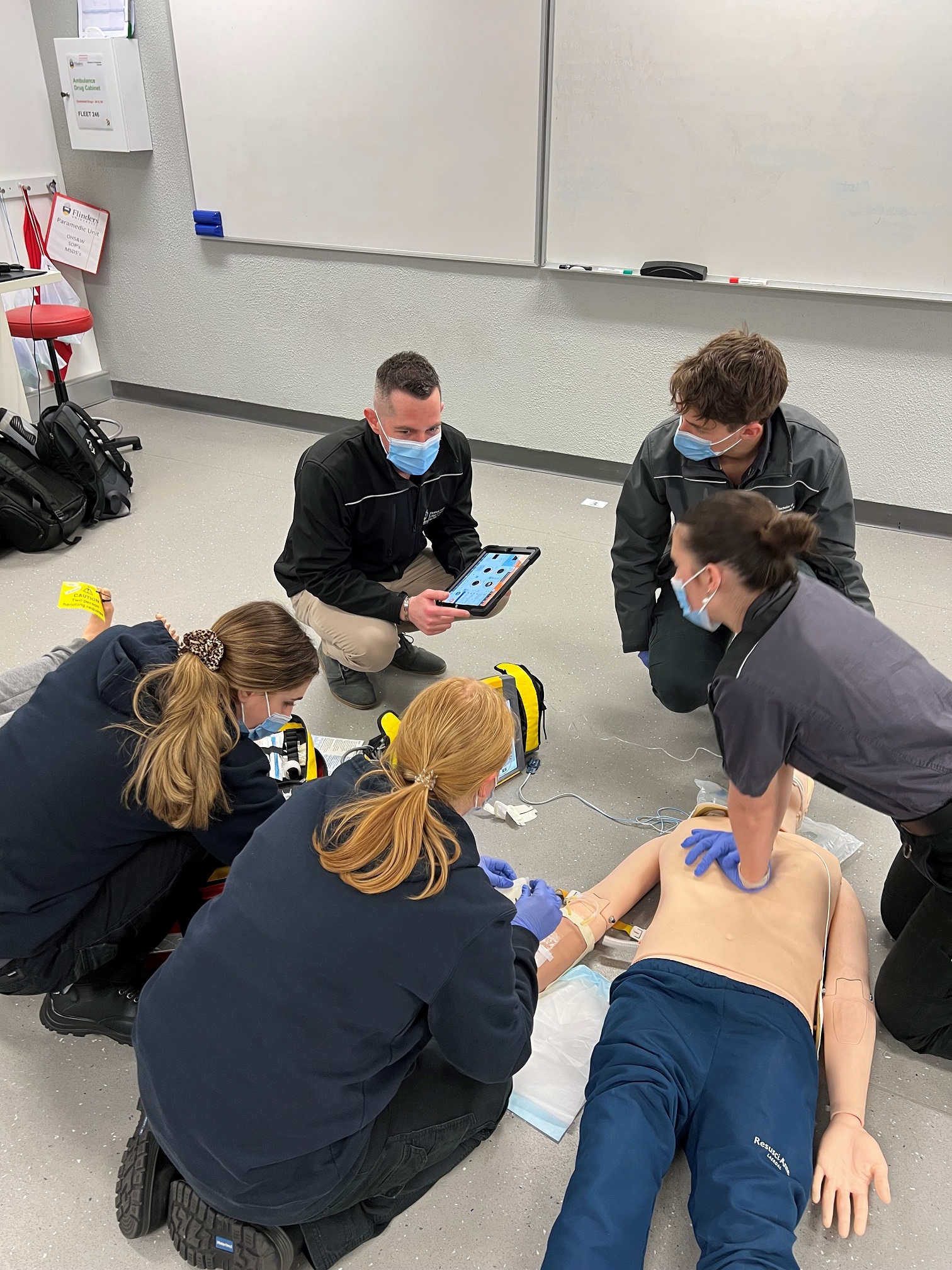
Working on the frontline of the health system’s response to COVID-19 in often trying and demanding conditions has highlighted the ever-changing role of a paramedic. Flinders University graduates are among those leading the charge to change.
Flinders University’s Paramedicine Course Coordinator Brad Mitchell ( MClinEd(Res) ’21) says we are witnessing a transformation of the role of paramedics, who traditionally worked in state-based emergency ambulance services, responding to triple-0 calls to help the acutely ill or injured person.
“But things are shifting more to assisting those with a variety of complex health and social needs.
“Paramedics now frequently treat people in their own homes or refer them to alternate health services, rather than transporting to hospital.
“It’s about trying to get the right level of care and support to meet each individual’s needs,” Brad says.
Paramedicine became a regulated profession under National Law in December 2018, meaning specific qualifications must be held, and standards met to be able to register as a paramedic, much like other health practitioners. This development opened the door further for changes in the profession.
The shift in treatment focus and delivery became even more important with the onset of COVID-19, whereby people needed to be directed to appropriate services, which was often not a hospital emergency department.
Paramedics have also been instrumental in the healthcare system’s COVID response, providing vaccinations and PCR testing, while utilising new technologies like telehealth services to reduce presentations to hospital.
“It is now becoming more common to see paramedics working in GP clinics or urgent care centres, hospital emergency departments, and alongside other healthcare practitioners like community nurses and mental health teams,” Brad says.
“As a university, it is critical we are responsive to the needs of industry to make sure our graduates are not only ready for the transition to practice but will succeed and be resilient in a demanding profession.
“The Flinders Paramedicine program is one of the longest-running paramedicine degrees in Australia, with more than 1500 students graduating over the past 20 years.”
The success of the program in recent years has included an expansion north along the Australian Central Corridor, with the delivery of the program in the Northern Territory, launched in 2021.
The Flinders University Bachelor of Paramedic Science boasts strong links to industry, working closely with SA Ambulance Service and St John Ambulance Northern Territory.
“The degree is taught mainly by practising paramedics and paramedic tutors, so everything stays relevant and up to date,” says Brad, who himself came to academia from SA Ambulance Service.
He says he was proud to be able to pass on knowledge and nurture the learning of his future colleagues, watching them develop over their time at university and on clinical placement.
“Due to the relationship between Flinders University and SA Ambulance Service, there are opportunities each year for paramedicine staff to join the university on a teaching secondment.
“I decided to do this in 2014 and have never left,” Brad laughs. “I am now the Course Coordinator which sees me responsible for all things related to the degree and the student experience.”
The popularity of the Flinders program may have seen the entry criteria for school leavers increase significantly, but there are a range of admission pathway options, including for Indigenous students and St John Ambulance NT volunteers.
“We also provide a seamless transition into the Flinders Medical Program and further research-based studies.
“Many of our graduates have now gone on to become intensive and extended care paramedics in Australia and overseas, senior managers in ambulance services and hospitals, hospital-based doctors, general practitioners, and researchers.”

